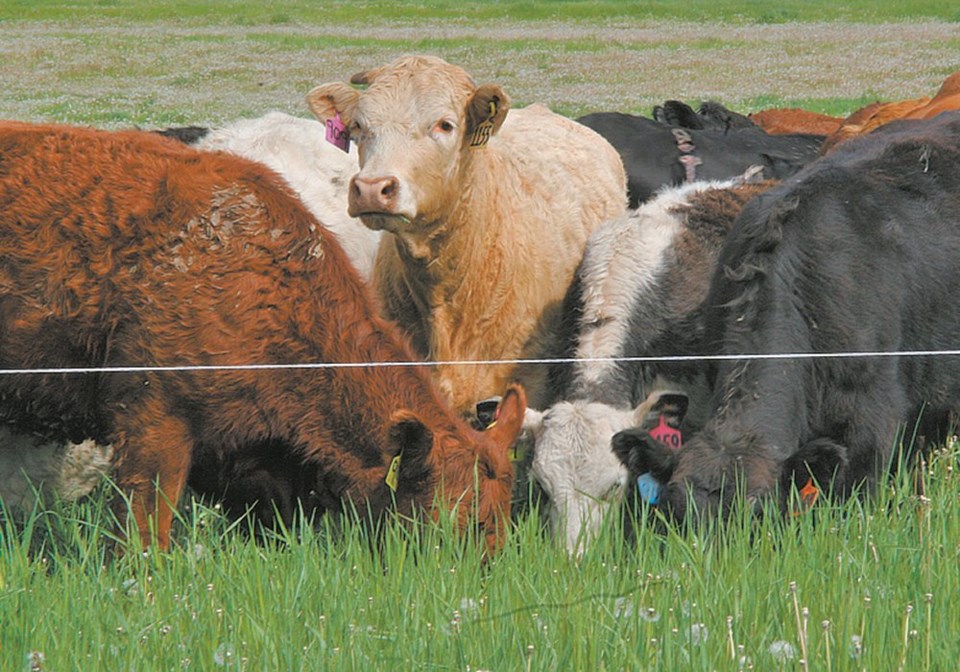WESTERN PRODUCER — Twelve agricultural organizations across Canada will deliver nearly $183 million on behalf of the federal government to farmers who adopt beneficial management practices to reduce greenhouse gas emissions.
Agriculture minister Marie-Claude Bibeau announced Feb. 22 that a large chunk of that money will go to the prairie provinces and farmers who adopt rotational grazing, cover crops and nitrogen management.
The Manitoba Watersheds Association will get $40 million to deliver a program there and in Saskatchewan, while Results Driven Agricultural Research in Alberta is getting $33 million. The Canola Council of Canada is using $22 million to help prairie farmers boost canola yields while reducing nitrous oxide emissions.
The funding comes through the On-Farm Climate Action Fund announced last July.
Bibeau said she asked industry to deliver the cost-shared money directly to farmers because these organizations are close to producers.
“Working with farmers they are better able to identify region-specific, effective and practical solutions to reduce greenhouse gas emissions,” she said.
Bibeau added the fund will help reduce barriers and support faster and wider adoption of best management practices (BMPs).
“By the end of the two next seasons these projects will play a big role in helping reduce emissions by up to two mega tonnes. That’s the equivalent of powering more than 400,000 homes for an entire year,” she said.
Examples of what might be covered by the program include per-acre payments for cover crop adoption or costs such as seeds and equipment, the agronomic services to develop a farm’s nutrient management plan or modify equipment for fertilizer application, or the agronomic services to develop a grazing management plan, cross fencing, water systems and more.
Lynda Nicol, executive director for Manitoba Watersheds Association, said 38 organizations supported the prairie application. A steering committee includes the Saskatchewan Association of Watersheds, Manitoba Forage and Grasslands Association, Saskatchewan Forage Council, Manitoba Habitat Heritage Corp., Manitoba Beef Producers and representatives from individual watershed districts.
Nicol said plans for how the money will roll out should be announced in March.
“With this project we are taking a grassroots localized approach to addressing issues related to climate change in agriculture,” she said. “This is a project for producers. We are intent on producers seeing the great impacts they can make on their farmlands by adopting these principles and we are confident in the strength of our watershed districts and other delivery partners to move this project forward to serve producers efficiently.”
Asked if producers who have already implemented one of the three BMPs identified in the program will be eligible for direct payments, Nicol said the committee wants to ensure as many farmers as possible can access the program.
“While this program is intended to be for new acreage there is opportunity perhaps for expansion… where there’s practices that can be further enhanced,” she said.
In Alberta, the RDAR chief executive officer said accelerating the adoption of BMPs to store carbon and reduce greenhouse gases will improve biodiversity and soil health.
“For RDAR, OFCAF will be an important resource to advance producer competitiveness, profitability and productivity,” said Dr. Mark Redmond.
The other delivery leads are: ALUS Canada, which gets $700,000 to set up a sustainable bison grazing program with Woodland Cree First Nation in Northern Sunrise County in Alberta; B.C. Investment Agriculture Foundation, $8 million for BMP adoption; Canadian Forage and Grassland Association, $10 million to help farmers in B.C., Alberta, Saskatchewan and Quebec plan and implement rotational grazing; Ecocert Canada, $4.5 million to help certified organic farmers adopt BMPs; New Brunswick Soil and Crop Improvement Association, $6 million; Ontario Soil and Crop Improvement Association, $25 million; Perennia Food and Agriculture Inc., $8.5 million to assist farmers in Nova Scotia and Newfoundland; Prince Edward Island Federation of Agriculture, $6 million; and L’Union des producteurs agricoles (UPA), $19 million for farmers in Quebec.

